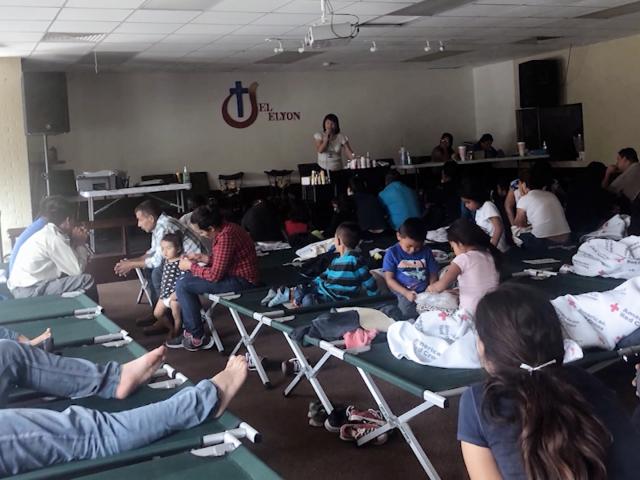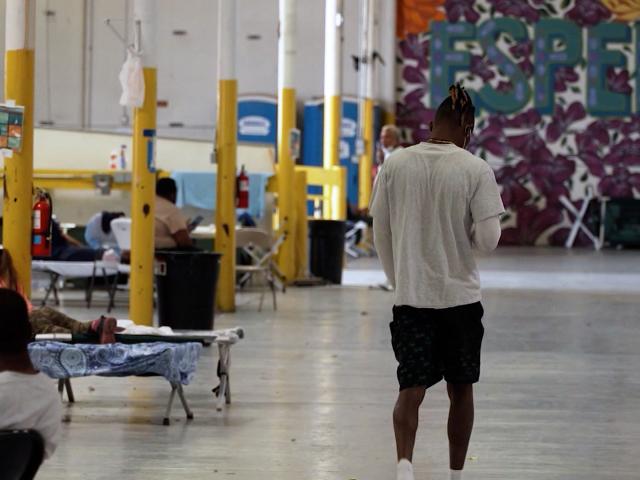Once overwhelmed by waves of asylum-seekers, most migrant shelters in El Paso now sit quiet—some even shuttered—as arrivals drop and funding dries up.
At the peak, shelters were managing 5,000 migrant crossings a day, said Larry Floyd of the El Paso Baptist Association. “It just wasn’t beneficial to continue not knowing the circumstances if we were ever going to get more migrants. We were one of the last ones to close,” he said.
Out of 14 shelters that once operated in the city, only five remain open. The U.S. Border Patrol attributes the decline to tougher enforcement and increased military presence. But faith-based groups say their mission continues despite the shifting landscape.
“A lot of our work is just supporting the real sort of fundamental humanitarian needs,” said Sami DiPasquale, executive director of Abara, a charity that partners with 32 shelters on both sides of the border. “You can’t imagine some of the trauma that people are arriving with.”

The U.S. Conference of Catholic Bishops is phasing out many migrant aid programs, citing funding cuts tied to Trump-era policy shifts. DiPasquale warned that such cuts hurt entire communities: “When funding is taken away by the government, it really impacts everybody… the community needs to figure out how to fill the hole.”
The Justice Department is also pulling grants from shelters and legal aid centers. Critics, like Texas Rep. Don McLaughlin (R), argue some non-governmental organizations are misusing funds. “Most of these NGOs, in my opinion… it became a synonym for profit for them,” he said, referencing a now-terminated $18 million monthly federal contract with Family Endeavors to run an empty shelter.

The legal landscape is also tightening. Annunciation House, a Catholic-run shelter in El Paso, is facing a lawsuit from the Texas Attorney General alleging the group violated state law by aiding undocumented migrants.
“This is trying to make an example of an organization that has been at the forefront of this work for over four decades,” said DiPasquale.
Supporters argue the suit threatens religious liberty. “The intent is clear,” said Dylan Corbett of the Hope Border Institute. “To intimidate organizations and local communities so that they don’t provide services to migrants.”
Annunciation House declined to comment while awaiting a decision from the Texas Supreme Court—a ruling that could have sweeping implications for faith-based aid across the state.
With fewer arrivals, ongoing legal battles, and reduced resources, once-essential shelters are closing their doors, raising new questions about the future of migrant support at the Texas border.
“Whatever your ideas about the border… Jesus was alive and present in our center,” Floyd said. “We saw over 4,000 of these migrants that said yes to Christ.”

















